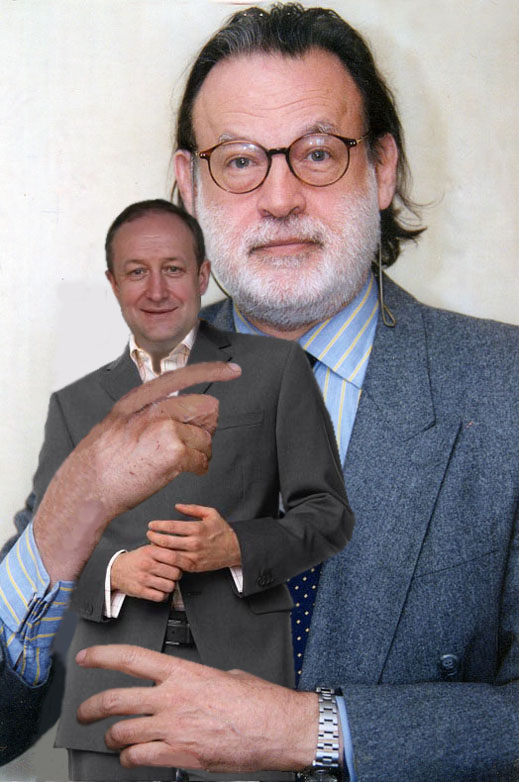
By John Helmer in Moscow
Sergey Frank, the chief executive of state owned Sovcomflot (SCF), one of the top-5 tanker companies in the world, is now into his fourth straight day of cross-examination in the UK High Court for what is turning out to be an unexpectedly dramatic examination of the way high Kremlin officials have fought each other over the management of Russia’s oil shipping concession.
Frank has admitted to the High Court that he encouraged and approved introduction of time-chartering of Sovcomflot vessels at meetings with Yury Nikitin and representatives of Gennady Timchenko; and voted on the Sovcomflot board to approve the sale and lease-back transactions carried out by his predecessor, Dmitry Skarga. The admissions, given under cross-examination by Graham Dunning QC and questioning by Justice Andrew Smith, undermine the Sovcomflot lawsuit, which charges that charter, sale, and leaseback transactions signed between SCF and Nikitin’s companies had defrauded the company of hundreds of millions of dollars; and were the result of corruption between Nikitin and Skarga.
In his second day of testimony, on October 6, Frank conceded that the first time-charter fix he approved was with a company controlled by Timchenko, the influential oil trader, on terms similar to those he subsequently charged as non-commercial on Nikitin’s part. But Frank said repeatedly that he could not remember the meetings at which these deals were discussed.
Regarding his vote of approval of the transaction record on September 2, 2002, at a session of the SCF board, Frank said: “I wasn’t present at this meeting… I cannot say that I saw the minutes of this meeting; I was not present there, and I say in the very sketchy details, some transaction mentioned here in this report, with some basic parameters of that, that’s all. Technically I was not in time to be in time for the meeting properly. But anyway, I signed it.” Explaining his vote of approval for Skarga’s transaction record at a board meeting in 2005, Frank testified: “I don’t remember any adverse comments on that particular transaction, because at this moment when I signed this report, we know what we knew about everything. Of course now we know more.”
At one point, Frank lashed out at Skarga, and was reprimanded by the judge, High Court Justice Andrew Smith, who told him to stick to the evidence of fact and “rein yourself into that”.
Frank was asked to explain how he could justify his attack on Skarga for signing long-term time charters for the company fleet, when now that he is CEO, he is pursuing the same policy himself. “You have, in fact, Mr Frank, continued the same policy since you have taken over of predominantly time chartering.” “Not at all, actually,” Frank replied. “We immediately, when I took over, started to increase our spot exposure, because market actually went through the roof.” Frank was then asked: “And it is a fact, is it not, that recently, according to Moody’s, the credit rating agency, Sovcomflot has been downgraded; and they said that they would have downgraded Sovcomflot even further, were it not for the fact that you have a policy of time chartering most of your vessels?”
The Moody’s report on Sovcomflot was issued on April 30, and came with a rating downgrade and this endorsement of long-term or fixed time chartering of the fleet. “After the merger with Novoship, SCF has maintained its conservative approach to fleet management (as of end of Dec. 2008, Sovcomflot maintained a 67%/33% fixed/spot ratio). A strong emphasis on long-term relationships results in low volatility of revenues.”
In the report text, attributed to three Moody’s analysts, Marco Vetulli and Paolo Leschiutta in Milan, and Myriam Durand in Paris, the distinction is made between the financial prospects of the Russian government, which owns the shipping company, and the company by itself. The analysts cautioned that the Moody’s rating could go up or down, but this would depend on SCF, not on the Russian government’s financial performance. “A notch upgrade of the rating of the Russian Federation, “the report says, “will not trigger an upgrade of SCF rating.” That would depend on “the event that the company showed progress towards a Retained Cash Flow/Net Debt ratio in low thirties, an EBIT/Interest coverage ratio over 5x and/or a Debt/EBITDA ratio (all ratios on adjusted basis) under 3.0x on sustainable basis.” Likewise, Moody’s report warns that so long as SCF’s financials remain stable, not even a downgrade of the sovereign rating would hurt. “A notch downgrade of the rating of the Russian Federation would not trigger a downgrade of SCF’s rating with the BCA at the current level.”
The Moody’s analysts wind up with the warning that “the [SCF] outlook could be revised or the rating could be adjusted downward in the event of weaker-than-expected market conditions and/or operational problems.”
From the witness box, Frank testified to a different recollection of the Moody’s report: “I think you are not quoting Moody’s, you are quoting the statements of [a] local tiny journalist in Moscow.…They [Moody’s] have simply downgraded us because Russian [sic] has been downgraded, and just to follow this track, they did it.”
Frank’s spokesman in Moscow, Andrei Kechashin, was asked to confirm that Frank’s height is 1.69 metres. At present in his socks, Helmer is at the 1.89 metre mark. There was no response from Kechashin.











Leave a Reply